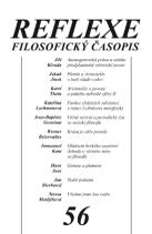The Finite Peace
The text argues against Kant’s idea of eternal peace. For Kant, both forces of men’s motivation (nature and morals) work in the interests of peace. For this purpose, Kant ignores the difference between both and postulates the estate of peace as the estate of ultimate Right towards which mankind inevitably heads. The key moment of this solution is the principal identification of politics and morals in the term Right.
The task of achieving peace doesn’t have any inner limitation here, since Kant programmatically mixes up right and justice. Yet justice – unlike right – is the ability to also respect another liberty, i. e. another meaning of liberty. That’s why there is no general rule for justice: it is a creative feat which takes place beyond the simple disjunction „Licence versus Obedience“.
The peace for which politics should endeavour ernestly is in itself finite, thus never final (definitive) and its finite nature has positive and essential reasons in the character of human freedom.
Backlinks: Reflexe 20
